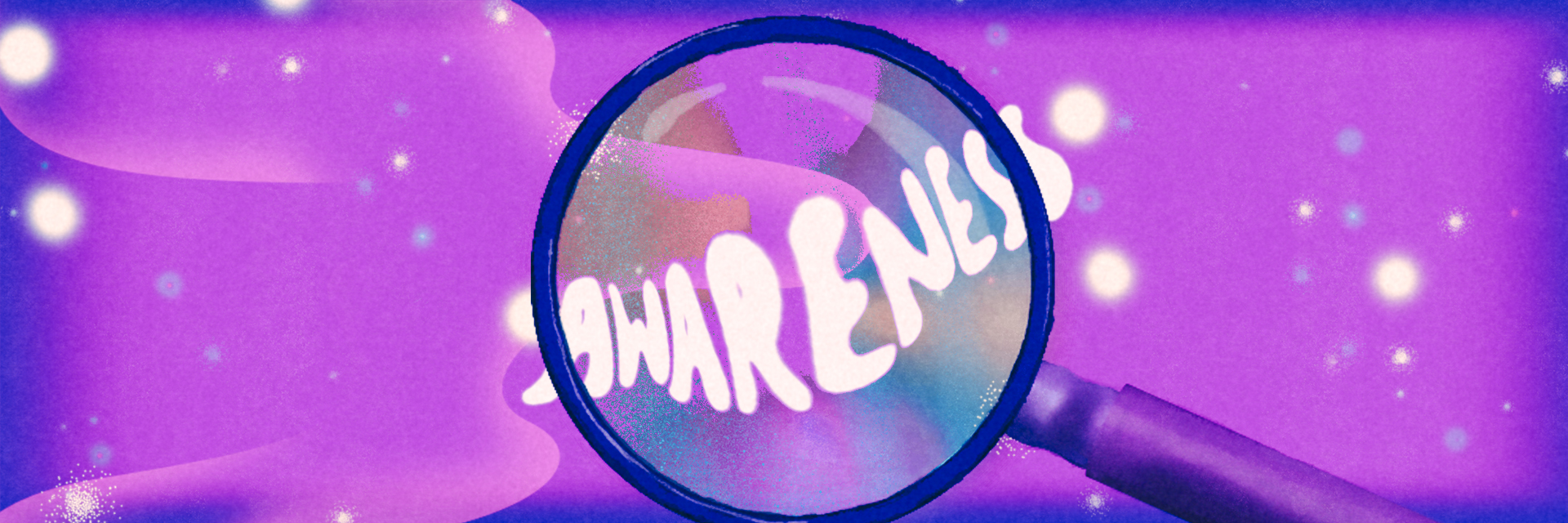
We Will Emerge: Awareness
We Will Emerge is a collaborative project bringing together 111 writers, activists, academics, poets, and public servants to imagine a blueprint for a post-COVID America. These submissions reckon with increased awareness. These brief essays envision a society more compassionate and more aware of the experiences that both separate and unite us. Contributors for this section of We Will Emerge include Julia Alvarez, Mara Keisling, and Simran Jeet Singh.
JUMP TO:
Julia Alvarez | Rana Ayyub | Kate Bowler | Larry Charles | Charlotte Clymer | John Donvan | Julia Ioffe | Randa Jarrar | Neal Katyal | Mara Keisling | Maaza Mengiste | Rev. Otis Moss | Suzanne Nossel | Sharmeen Obaid-Chinoy | Connie Schultz | Simran Jeet Singh | Brad Stone | Kara Swisher | Rebecca Traister
Julia Alvarez
We will emerge with better vision.
Not until this moment are we seeing the people who make this world work: the myriad invisibles, the anonymous, the undocumented, the overworked and underpaid professionals—some of whom we don’t even grace with the status of “professionals” or pay them a living wage or take care of their health (so they can take care of ours) or give them legal status if their skins are darker, their Englishes inflected, their histories soaked in blood we have spilled.
Look up, look around, there’s a sign on a lamppost in town, THANK YOU TRUCKERS; there’s a parade of parents and students, THANK YOU, TEACHERS; there’s a lineup of people, six feet apart outside the hospital ER, clapping when the orderlies emerge at the end of long days and nights saving our parents, our friends, our children, our sisters, and our brothers; there’s a note taped on the lid of a garbage can, postbox, bus sign, store window, THANK YOU GARBAGE COLLECTORS, MAILPERSONS, PUBLIC TRANSPORTERS, STOCKERS, AND CASHIERS.
Look and see clearer skies, cleaner waters, saplings reemerging from forests floors ravaged by fires, flowers budding where the flood waters receded. Who knew we could be so grateful to see the bluebirds returning, bees buzzing in the lilacs, dandelions weeding our lawns? THANK YOU, OH, THANK YOU, EARTH. Who knew we could see with such wrenching tenderness, compassion, and clarity? “In a dark time, the eye begins to see,” wrote the poet Roethke, and Rebecca Solnit reminds us, “Inside the word emergency is ‘emerge.’”
We will emerge (from this emergency) and find a better way.
Julia Alvarez is the author of novels, poetry, essays, and books for young readers. Afterlife is her first adult novel in almost 15 years, Already A Butterfly: A Meditation Story is a new picture book, and she has contributed a poem to Together in a Sudden Strangeness: America’s Poets Respond to the Pandemic.
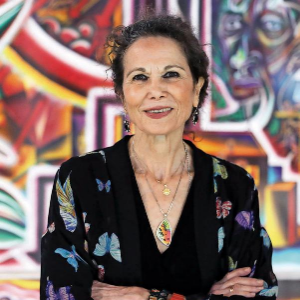
Rana Ayyub
We will emerge more compassionate, empathetic, more forgiving, more caring, kinder, softer, and more tolerant human beings.
Most of us were occupied and consumed with our work. Our passion and our life’s mission defined us. But these times that we live in now have made us realize that there is more to life. One needs to be patient with oneself and with people and circumstances, accept our shortcomings, not chase an ideal world because there can be none, eat well, and sleep well. And it’s alright to lose ourselves. It’s alright to make mistakes and not regret making them.
We will emerge and find a better way to coexist with the less fortunate, more needy, and the ailing. And in many ways, this is what the month of Ramadan asks us to become. Live with less, share with more, thank the Almighty, and cherish every moment of life.
We will emerge and find a better way.
Rana Ayyub is an Indian investigative journalist and a global opinions writer at The Washington Post. She is the author of Gujarat Files, an internationally acclaimed book on Narendra Modi.

Kate Bowler
We will emerge without our rabid individualism. Without our default assumption that alone is better, faster, stronger. We will have acknowledged the deep hunger inside of us to hold and be held, leaning into the beautiful interdependence for which we were made.
We will stop wearing $100 t-shirts that say “Trust the Universe” when all we really meant was that we planned on only taking care of ourselves.
We will throw out books that tell us that there is a cure to being human. There isn’t. We can never out-learn or out-maneuver our fragility. We are delicate, and it is awful and glorious.
We will question the cultural scripts that tell us that life must always get better. Life can still be beautiful, but only after we surrender our individualism and pick up each other’s burdens.
We will emerge and find a better way.
Kate Bowler is a Duke professor, bestselling author of Everything Happens for a Reason And Other Lies I’ve Loved, and host of the “Everything Happens” Podcast.
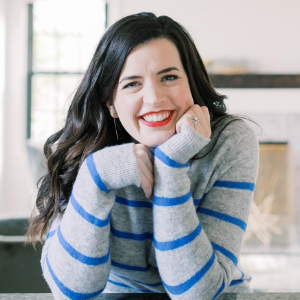

Larry Charles
We will emerge, but as what? As a society that recognizes how injustice, poverty, the climate crisis, and terrible leadership led to this moment and make the radical sweeping changes necessary to build a more just and safe society for everyone, especially our most vulnerable? Or as history shows, will we let the corporate and governmental psychopaths who’ve destroyed everything for profit off the hook to wreak more untold death and destruction with impunity yet again? Yes, as a species, we will survive in some form, but this time we better emerge and find a better way, or we will be here again and again, or we won’t be here at all.
Larry Charles is, amongst other things, a writer/director/producer and part-time human. His Netflix show, Larry Charles’ Dangerous World Of Comedy, is still on Netflix last he checked. Instagram: @larrycharles, Twitter: @larrycharlesism

Charlotte Clymer
We will emerge and be more thoughtful and intentional.
To the horrors of our justice system and those who are incarcerated. To the cruel health disparities unjustly placed on people of color. To the discrimination faced by LGBTQ people with health problems. To the struggles of all vulnerable communities erased and forgotten, especially in a time of crisis.
We will emerge and find a better way.
Charlotte Clymer is a writer, LGBTQ advocate, and military veteran. She is based in Washington, D.C.
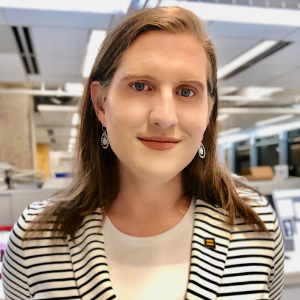
John Donvan
We will emerge and be wiser about what it means to listen. To early warnings. To those with true expertise. To those who have experiences only they can know. And if it turns out that such listening requires shutting up from time to time, well, perhaps that will be a lesson learned, first of many. Who knows? Maybe, if some of that happens, we will emerge and find a better way.
John Donvan is an author, broadcaster, and film producer.
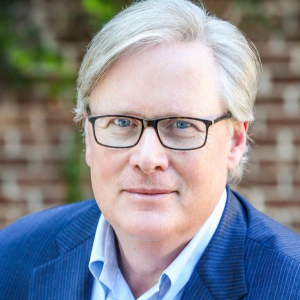

Julia Ioffe
We will emerge humbled and more respectful of science.
This pandemic has shown us that a nonorganic creature, invisible to the naked eye, can wreak havoc on our lives. It has shown us that, whether you believe in science or not, whether you’re a Republican or a Democrat, a citizen of China or the United States, a virus doesn’t care. It will act according to the laws of nature and science, whether we believe in them or not.
I hope that we, as a society, emerge from this humbled by this understanding, that we will be more respectful of science and its practitioners, that we will believe what they—not the politicians—tell us. I hope we will take them seriously when they warn us, not just about pandemics that can hurt us now, but about a rapidly changing climate that throws our children’s very futures into doubt. If we learn anything from this pandemic, it’s that we still have so much to learn.
May we emerge from this not with open, yelling mouths, but with open, curious minds. We will emerge and find a better way.
Julia Ioffe is a writer and journalist living in Washington, D.C. She is the D.C. correspondent for GQ magazine, where she covers politics and national security.

Randa Jarrar
Some of us will not emerge.
Randa Jarrar is the author of the books A Map of Home; Him, Me, Muhammad Ali; and the forthcoming Love is An Ex-Country.

Neal Katyal
We will emerge and be able to freely laugh again.
I remember the easy joy of belly-laughing. It was like that first run of the day on the ski mountain: crisp air, beauty around me, pure joy encapsulated.
COVID-19 has taken a lot of that away. The beauty is still there, so, too is the crazy stuff in our world to laugh about (or in the case of our leadership, at). But it’s all so much more painful.
It’s hard to laugh.
I know we’ll make it through this. And I know that those who lost their lives during this horror would want us to laugh, to be free, to return to our precovidmordial state.
We will emerge and find a better way.
Neal Katyal is the Saunders Professor at Georgetown Law, a partner at Hogan Lovells, and the former Acting Solicitor General of the United States.
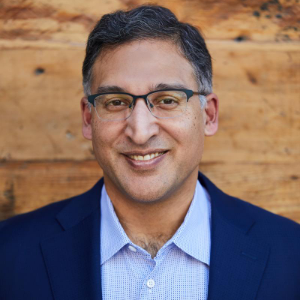

Mara Keisling
We will emerge and be more aware of the lessons we must learn.
We have been uncovering much about ourselves and our societies—what is beneficial, what is malignant, and what is beautiful. We are seeing a lot about our societies that has not worked. As we emerge with scars and data and obvious lessons, we can study it all and work together to be our better selves. We have always faced or ignored choices about our environment, our economy, and each other; we are living with the collective choices we have made or obdurately refused to make. Our choices and refusal to make choices always bear fruit that either nurtures us or brings us to our knees.
If we have learned this, and if we learn yet more and do better, we will emerge and find a better way.
Blooper Reel:
We will emerge with 14 new TV streaming subscriptions, 68 cans of soup, and 36 hoarded bidets.
We will emerge with more than a little admiration for preppers.
We will emerge, see our shadows, and need to go back in for another six weeks.
I will emerge with a nice note from Amazon politely asking me to knock it off.
We will emerge with claustrophobia, agoraphobia, and mutual Stockholm Syndrome with my dog, who refers to COVID-19 as COVID-133.
We will emerge with a commitment to change internet providers.
Mara Keisling is the founding executive director of the National Center for Transgender Equality. She remains an optimist and an introvert.
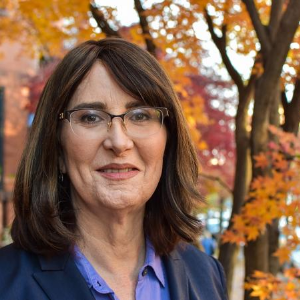
Maaza Mengiste
We will emerge and be compassionate.
We’ve been shocked into a greater awareness of how much we depend on each other. We have come to question who is really “essential” to society. We have a new understanding of how connected we are to those we have probably learned to ignore in that other time before this time. We are fragile, we are made vulnerable by the very fact of our existence. We have come to realize that those we cannot see can still make themselves felt in our world. We will want that world—our world—to be better for everyone. And inside this wish: an acknowledgement that true compassion also carries with it the first burning embers of a revolutionary fury.
We will emerge and find a better way.
Maaza Mengiste is an essayist and the award-winning author of the novels Beneath the Lion’s Gaze and The Shadow King.

Photo by Nina Subin
Rev. Otis Moss
First shall emerge the children who will gaze upon the sun and find joyous laughter, before those adults imprisoned by the shackles of cynicism are able to dash their dreams.
Next shall be poets who still smell the scent of hope on ancient words pulled from the wreckage of our democracy such as compassion, empathy, equity, community, and imagination.
Then shall emerge prophets some call poets walking a half step behind their siblings practicing an old faith in new ways calling forth new beloved communities by invoking saints named Martin, Fannie, Malcolm, Dorothy, Bayard, Caesar, and Wassaja.
Then the singers, musicians, and other artists shall create impromptu concerts with blue note tones, funk beats, jazz chords, folk lyrics as D-Nice offers J Dilla remixes on Instagram.
Teachers will gather with chefs collecting the echo of the songs, poems, prose, and sermons into a purple cast iron creole pot and feed this gumbo to students hungry for a civic meal.
As our children grow and students learn, a new nation shall be born from the power of their speech as politicians and pundits sit on the sideline dazed by the blinding glory of it all.
We shall emerge to find a better way.
Otis Moss III is a minister, activist, poet, and filmmaker who serves as senior pastor of Trinity United Church of Christ in Chicago, IL.


Suzanne Nossel
We will emerge and be more conscientious of one another and of our visible and invisible differences.
We will recognize that not all of us respond to the same thing the same way. We will recognize that our differences may be unpredictable and imperceptible. When we speak and act in ways that affect others, we will take account of the chance that what is innocuous to us may be hurtful or harmful to someone else. When we rush ahead or act on impulse, we can trip over these differences and stumble into unintended, but not unforeseeable, consequences. We will move around freely, but with awareness of the full range of who is around us, and care not to put them at risk.
Suzanne Nossel is the CEO of PEN America and the author of Dare to Speak: Defending Free Speech for All (HarperCollins, July 2020).
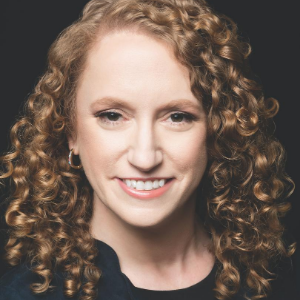
Photo by Beowulf Sheehan
Sharmeen Obaid-Chinoy
We will emerge and be more compassionate toward women.
We are all being told that the safest place for us right now is inside our homes. Yet, for many women around the world, the opposite is true. Domestic violence numbers have gone up dramatically. Locked away inside, many women are suffering and unable to flee from this vicious cycle. What if we all reached out to a woman we knew who was vulnerable? Would that create a safety net?
We will emerge and be more compassionate toward women.
We will emerge and find a better way.
Sharmeen Obaid-Chinoy is a storyteller and filmmaker who grew up in Pakistan. She is the only female director to have been awarded two Academy Awards by the age of 37. Since 2001, she has made over three dozen multi-award-winning films in over 16 countries, including Fundamental: Gender Justice, No Exceptions, Sitara: Let Girls Dream, Student Athlete, A Girl in the River, Song of Lahore, Saving Face, and Peacekeepers.

Connie Schultz
We will emerge and be the storytellers for the rest of our days.
Maybe we’ll start with who we used to be because how else can we explain who we are today? We didn’t always cower at the sound of a stranger’s sneeze or feel a surge of panic at the sight of a naked face walking toward us at the grocery. We used to look in the eyes of our beloved and never—not once—wonder if their warm breath on our faces, their kisses on our lips, could bring an end to our lives.
Our stories will unfold gradually, the way the best tales do, because it takes time to make sense of these images floating like snapshots in our minds. We will run our fingers along an arm, a cheek, a hand and remember the pain of imagining we would never feel that touch again. “People really die of loneliness, skin hunger the doctors call it,” poet Robin Beth Schaer writes in her poem “Holdfast.” How can a safe caress ever be anything less than a miracle now?
Life has always offered chances for revision to those who survive. We have more life to write. We will tell our stories because that’s the least we can do for all those others who weren’t allowed to stay.
We will emerge to find a better way.
Connie Schultz is a syndicated columnist and novelist. Her most recent book is The Daughters of Erietown.
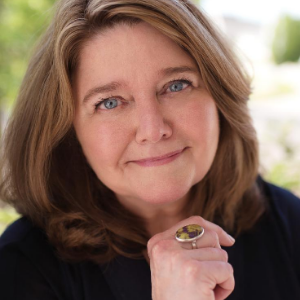

Simran Jeet Singh
We will emerge and be more grateful.
We had become so accustomed to the richness in our lives that we’d lost our ability to see it. We had taken our many blessings for granted, forgetting to appreciate the most basic things: health, relationships, connection, and resources.
This pandemic has jolted us into place, reminding us how much we value the things that matter most—and how fortunate we are to enjoy them. The gratitude we feel is life-giving. It helps us regain perspective on what matters most, and it instills in us a feeling of hope at a time when many of us need it most.
This pandemic has also exposed cracks in our system we have been ignoring for far too long. We have witnessed together how lethal racism can be, and we realize now the urgency with which we must confront it.
If the pandemic showed us that our wellbeing is more connected than we ever realized, grappling with racial justice has shown us that our experiences of freedom and justice are interconnected as well.
Perhaps we can cherish our new appreciation for life and its many gifts, and perhaps we can hold on to this perspective as we push into our collective revival. Wouldn’t it be powerful to live in such a way that, instead of stopping to smell the roses, we could carry that scent with us at all times—even as we trudge through the muddy waters of racial reckoning?
We will emerge and find a better way.
Simran Jeet Singh is a scholar, activist, and writer who teaches currently at Union Seminary and hosts Becoming Less Racist: Lighting the Path to Anti-Racism. He is the author of Fauja Singh Keeps Going: The True Story of the Oldest Person to Ever Run a Marathon, which is the first-ever children’s book from a major publisher to center a Sikh character.
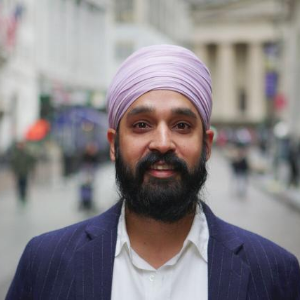
Brad Stone
We will emerge with a new found urgency.
We will confront the existential challenges to modern society with a spirit of international cooperation, led by science and empirical data. Solutions to climate change, disease, poverty, and the displacement spurred by technological advancement must span borders and anachronistic nationalist concerns.
We will emerge and find a better way.
Brad Stone is senior executive editor for global technology at Bloomberg News and author of the books The Everything Store and The Upstarts.
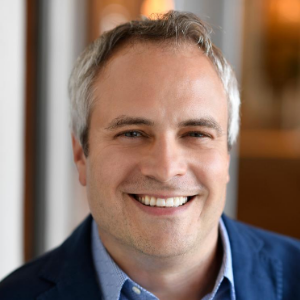
Kara Swisher
We will emerge and be more wary of tech.
I hope it has become entirely clear that our society has become a cheap date to Big Tech, handing over scads of personal information, having it monetized by them, and getting little in return except maps and messaging and dating apps (ok, those are good). In all seriousness, we need to be in charge of the tech we use, rather than vice versa, and it is up to us to clean up the toxic waste dump of humanity that has been created.
We will emerge and find a better way.
Kara Swisher is editor-at-large of New York Magazine, cohost of the award-winning “Pivot” podcast, and co-executive producer of the Code Conference series. She also has a special series on MSNBC called Revolution on the impact of technology on work, society, and more and is a contributing opinion writer for The New York Times. Swisher co-founded Recode, was producer and host of the “Recode Decode” podcast, and before that, co-produced and co-hosted The Wall Street Journal’s “D: All Things Digital” conference series (now called the “Code Conference”) with Walt Mossberg starting in 2003. Twitter: @karaswisher


Rebecca Traister
My hope: We will emerge and reckon, once again, with the twisted roots of our history.
We will emerge and be unable to deny the cracks in our systems through which too many fall too often, unable to pretend blindness to the inhumanities and indignities of our healthcare, prison, and economic systems, or to the broken nature of the leadership that landed us here.
My fear: We will emerge and swiftly paper over our broken past, our errors and failures of imagination and will. We will emerge and attempt to rebuild on ever more uneven ground, exacerbating the worst of the inequalities and injustices that got us here.
But then, I think, part of the challenge and the responsibility is pressing on toward hope, despite our worst fears and expectations. That is what it means to fight for growth, change, and justice. If we do not insist that it must be different this time, there is no chance that it will be. When we emerge, we must be different than we have been.
Rebecca Traister is a writer at large for New York Magazine and the author of Good and Mad: The Revolutionary Power of Women’s Anger.
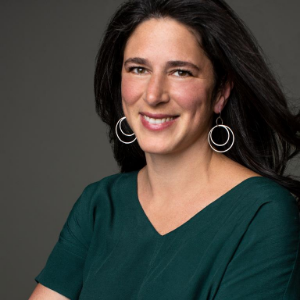
Photo by Victoria Stevens

